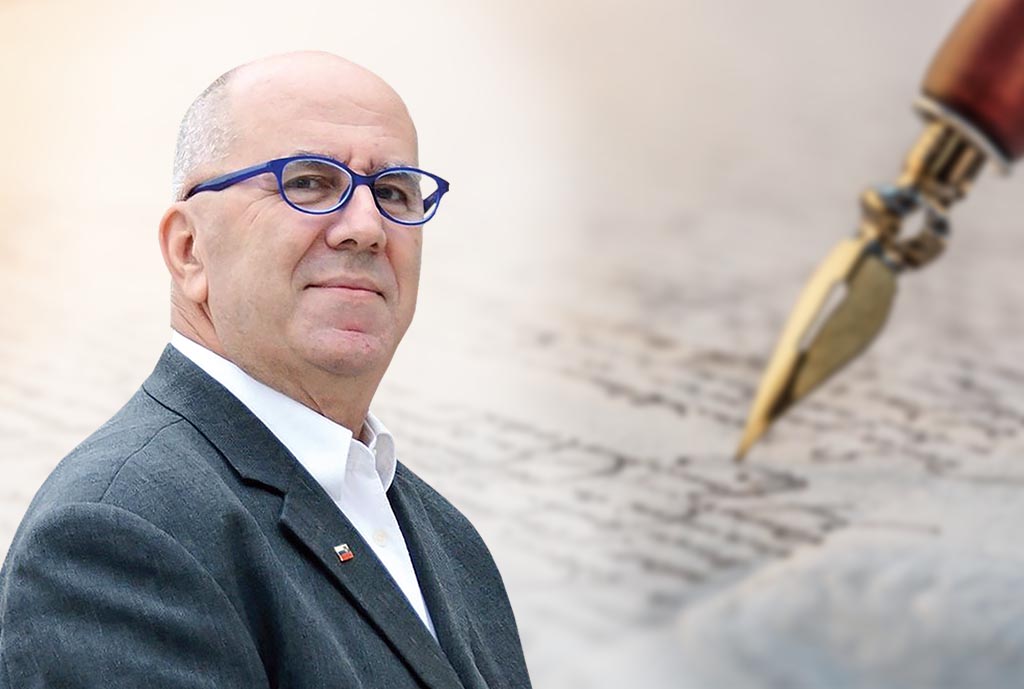By: Vančo K. Tegov
Where is this degenerate society heading? Is it not clear that a human being, as a living being, comes, lives, and departs naturally?
It is not always easy, even with suffering that is not easy, yet you extinguish when the moment for farewell arrives, departure from this world when the last atom of health and life energy goes out. Definitively. At that moment, the farewell from the earthly, physical world is also final. That is how it is, or rather, how it should and ought to be.
What is euthanasia?
Euthanasia is the causing or acceleration of death to alleviate suffering in a terminally ill and incurable patient.
The debate around euthanasia is always multi-faceted and involves various aspects of human and social life. On one side, there are advocates who argue for individual freedom, allowing the person to decide to end their life in the case of a terminal illness. This approach aims to first cease illegal euthanasia, making end-of-life decisions more transparent. Some also cite economic arguments, suggesting potential savings in healthcare expenses.
The Catholic standpoint arises from the understanding of the inviolability of human life as one of the “most fundamental and universal moral requirements”. Simultaneously, it desires that those who are suffering or dying do not experience severe pressure from their environment, whether domestic or societal, demanding their death to relieve their families and society. It advocates for the protection of every human life and comprehensive healthcare that would ease the suffering of patients to the greatest extent possible. Despite suffering, the value and dignity of human life remain unaffected. The Church encourages the establishment of hospices and emphasises the importance of new approaches in palliative care.
How are things different elsewhere?
Initially, euthanasia and assisted suicide in Canada were limited to adults with incurable illnesses in the terminal stage. However, in just five years, euthanasia became available to anyone facing chronic illness or disability, including the poor and homeless who feel like a burden to society. Utilitarian bioethics has undermined the value of human life and paved the way for relativism.
In Europe, the Netherlands was the first country to legalise euthanasia in 2001. It is worth emphasising that in the Netherlands, the situation can take a turn in the opposite direction. As they say, there are unintentional encouragements towards this terminal decision, often influenced by external social factors. During certain times of the year, there is an almost uncontrollable “surge”, especially before summer vacations or the new year, expressing a desire for an early end to one’s life. Without the repetition and mention of the “needs” for thorough consideration, the local society literally employs and pays “facilitators” and advocates to emphasise the urgency and necessity of deciding on the need for one’s own end of life.
How do we cope with them? Where is our “train” of advocates for Thanatos heading?
Devotees of the god Thanatos propose the Law on Assistance in Voluntary End of Life. Are we a normal society when we reach the point of having to defend ourselves against the mentioned worshipers?
I hope it leads them into a dead-end, where they will come to a halt and abandon, at least for a while, the idea that is foreign and unacceptable in an environment where we honour life and not its quick end. In the Constitution of the Republic of Slovenia, Article 17 states: “Human life is inviolable.” Every attempt at assisted death is a criminal act.
In Slovenia, a proposal for a law on voluntary euthanasia has emerged in parliament. This law raises important ethical questions for society, especially for those who would carry out such terminations, and, based on experiences from other countries, poses the possibility of abuse. Instead of a culture of life, the proponents support a culture of death. What is worse, the costs are imposed on the healthcare fund. This fund is intended for aiding in life-saving treatments, not for instances of accelerated death. Amid countless concerns, those advocating for life find themselves as the payers for death. The solidarity of the healthcare fund is meant for assistance in treatment and, consequently, towards better health.
How can someone, who has chosen a profession to care for patients and respect human life, be burdened by a law that requires them to carry out the termination of their patient? I apologise, but this law aims and strives for our doctors to become modern-day “Mengeles”.
No, it will not work; it must not happen. A law that demands doctors, who are guardians of life and whose duty is to preserve life and aid patients, to participate in such terminations. Doctors spend years studying to care for and treat patients, not to take away their lives. Slovenian society must not allow this.
Moreover, it is necessary to communicate to all the amoral, inhumane, and various “caregivers” of individual aspects of human life through different “initiatives” that society needs promoters for a better life and not something else that detracts from the foundations of human existence, called a rich and fulfilling life.

